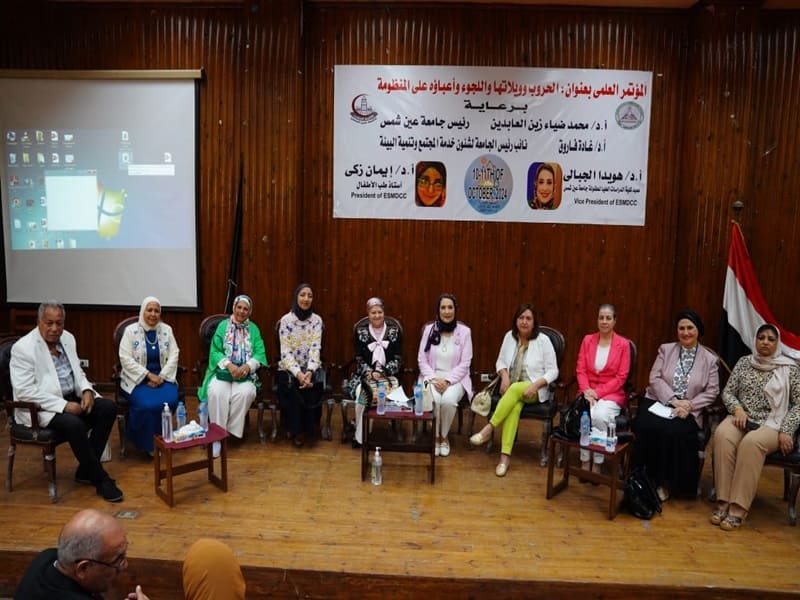The Scientific Conference of the Faculty of Graduate Studies for Childhood discusses the impacts of wars and the burdens of asylum on the system
The scientific conference of the Faculty of Graduate Studies for Childhood at Ain Shams University titled " Wars and their Woes, Asylum and its Burdens on the System" was inaugurated under the auspices of Prof. Mohamed Diaa Zain El-Abedeen, President of the University, and Prof. Ghada Farouk, Vice President for Community Service and Environmental Development and Acting Vice President for Graduate Studies and Research. The conference was chaired by Prof. Hoda El-Gabaly, Dean of the Faculty, with the presence of Prof. Hayam Nazif, former Dean of the Faculty, and participation from Prof. Zakaria El-Dessouki, Head of the Media Department, Prof. Rehab Abdelkader, Prof. Medhat Shehata, Professor of Pediatrics, Prof. Maisa Farid, Professor of Pediatrics, Prof. Hanan El-Gamal, Professor of Pediatrics, along with a group of pediatric professors from the Faculty of Medicine and specialists in medical fields concerned with mental health and childhood development. The conference activities took place over two days, October 10-11.
In the first sessions, the speakers discussed the effects of wars, crises, and forced displacement on the healthcare system, highlighting the health challenges faced by refugees and the burdens on the medical system in crisis areas.
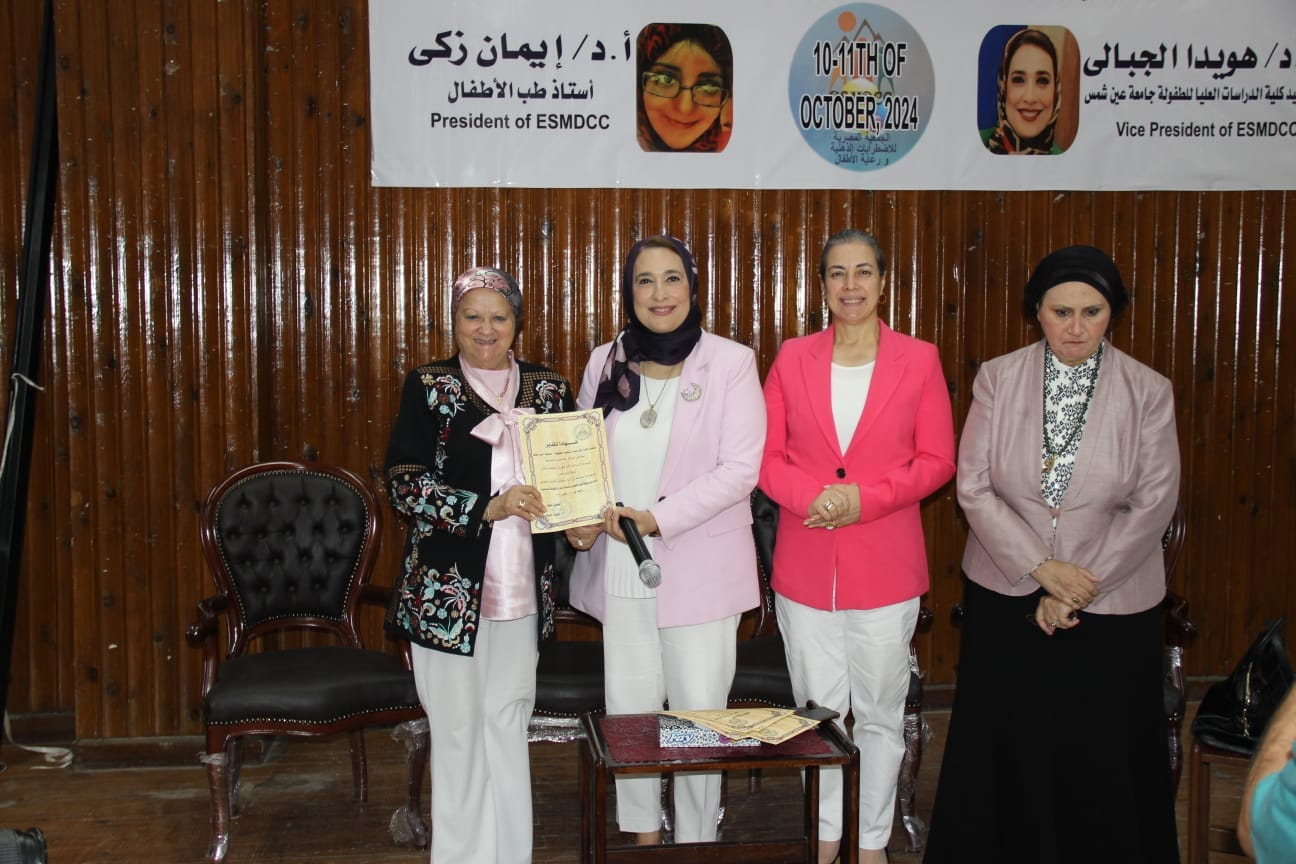 |
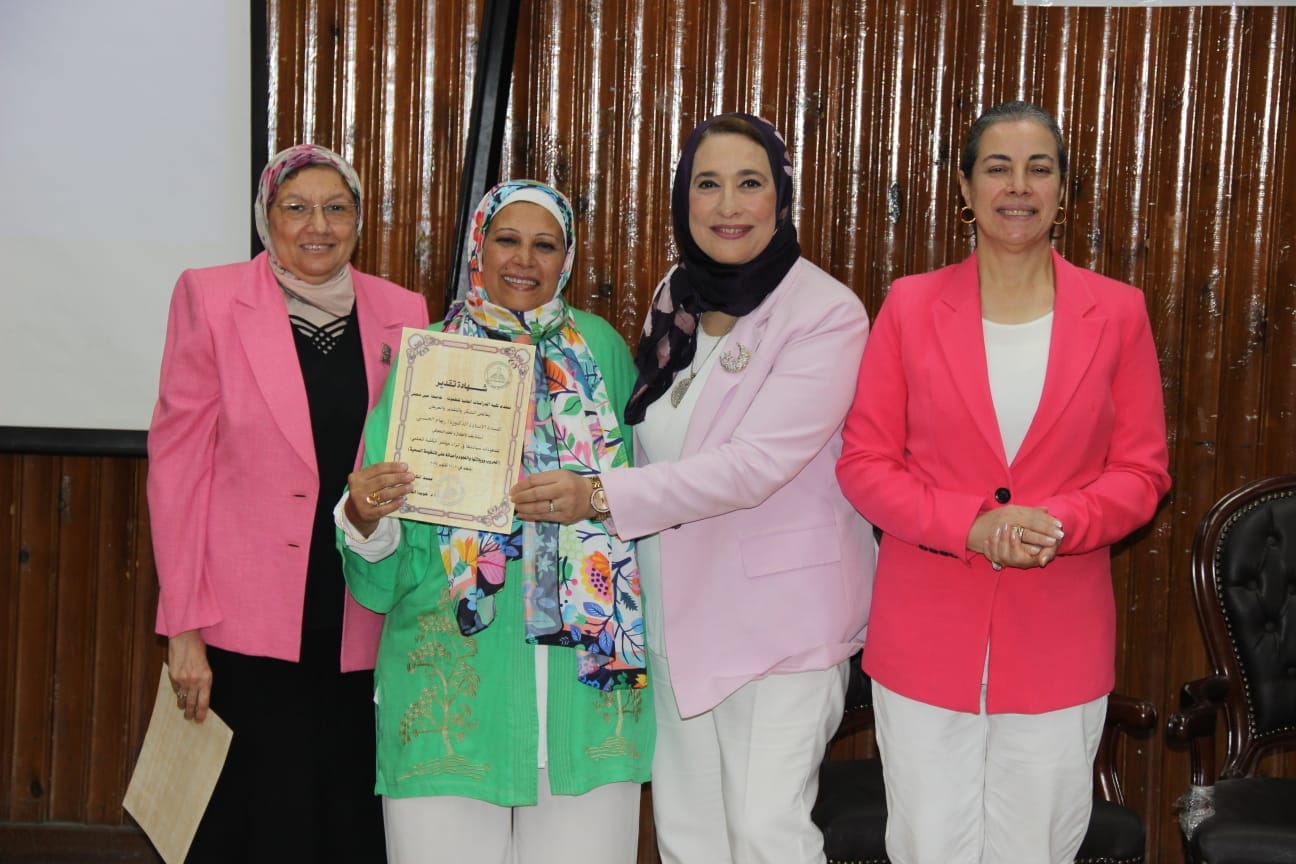 |
|
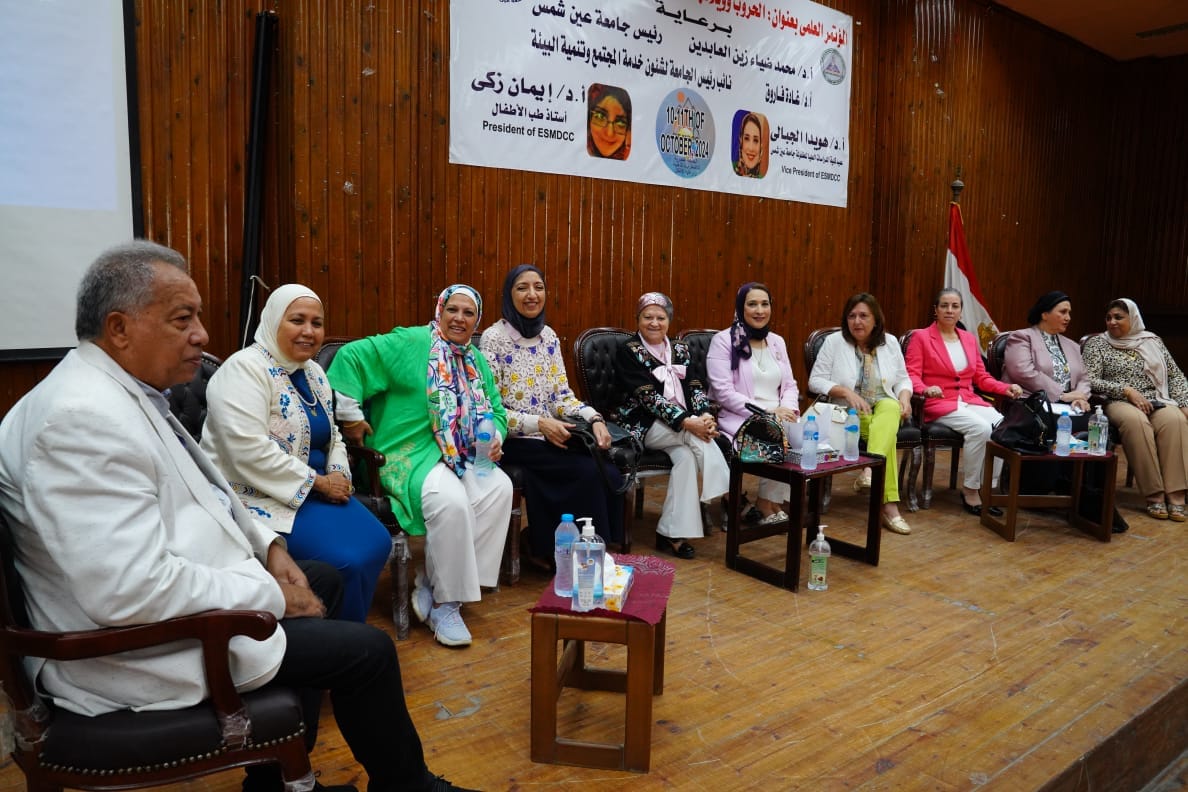 |
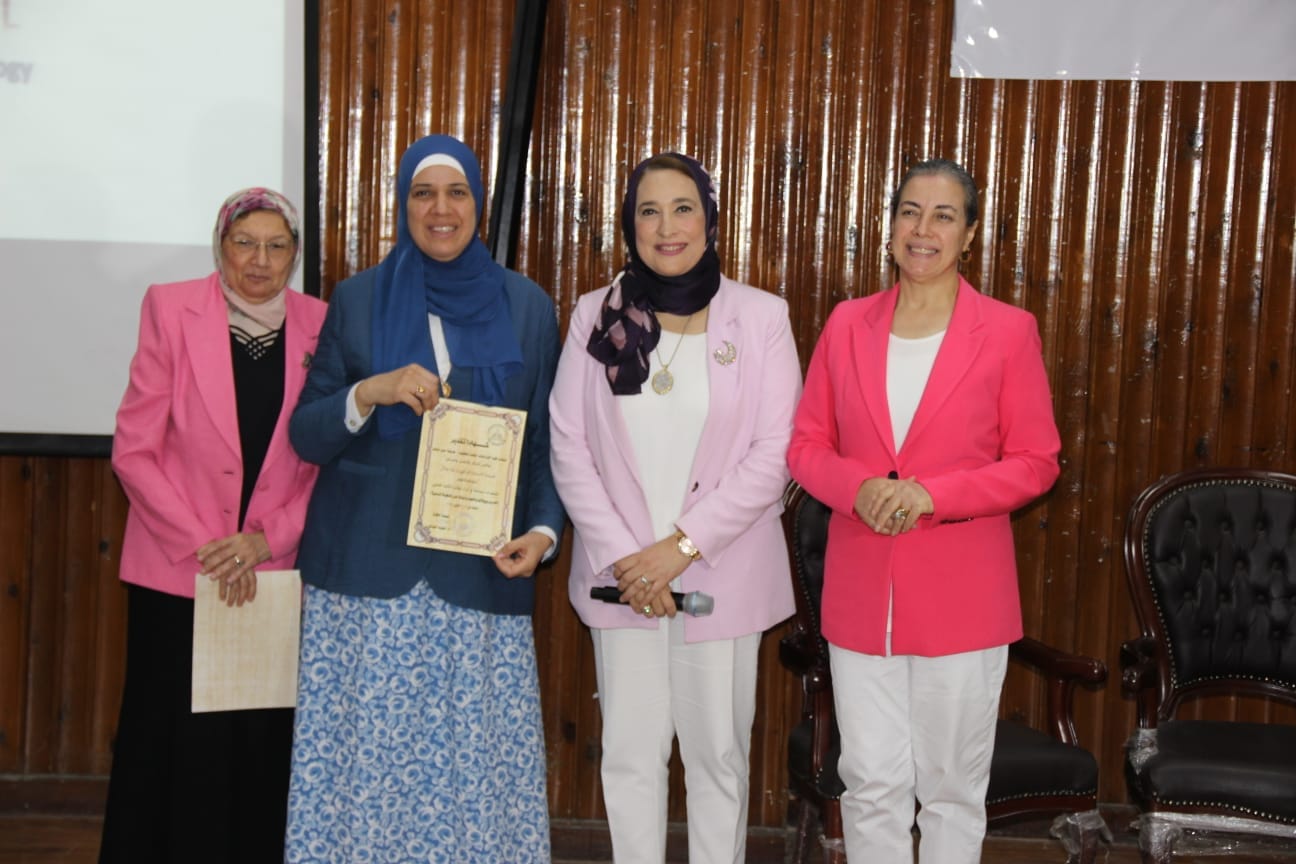 |
|
Prof. Hoda El-Gabaly emphasized in her opening speech the importance of activities that address the difficult conditions faced by refugees and their impact on public health. She praised the initiatives and solutions proposed by the university to alleviate the health burdens on communities affected by wars, such as the blood donation campaigns launched by the university in cooperation with the "Sharyan Al-Ata Association at the Faculty of Medicine for Blood Donation." This initiative was in response to the directives of President Abdel Fattah El-Sisi to provide immediate support and humanitarian relief to the sisterly state of Palestine, to mitigate the severity of violent events.
Prof. Eman Zaki, a Professor of Pediatrics at the Faculty of Medicine, noted that the conference represents a valuable opportunity for researchers and those interested in childhood and health issues to learn about humanitarian issues relevant to the region, especially in light of the escalating armed conflicts that directly affect the lives of millions of refugees.
Many professors were honored at the conclusion of the opening session in recognition of their efforts, including Prof. Dr. Jalila Mokhtar, Professor of Pediatrics at the Faculty of Medicine, Prof. Dr. Ilham Hosni, Professor of Pediatric Immunology, Prof. Dr. Hanan Ibrahim, Head of the Pediatrics Department at the Faculty of Medicine, Prof. Huda Tammom, Professor of Neurology at the Faculty of Medicine, Prof. Dr. Hanan Abdel-Latif, Prof. Khadija Tanbari, Professor of Hematology, Dr. Riham Sabry, Assistant Professor of Pediatrics and Disabilities, and Prof. Dr. Walaa Ragab, Lecturer of Psychological Studies at the college.
The conference sessions continued online using video conferencing technology, where Dr. Amal Farmawy presented the major diseases that emerged due to the forced displacement of Sudanese, Palestinian, and Syrian populations, which had completely disappeared from Egypt, such as polio and hepatitis. This has led to a renewed commitment to vaccinate against these diseases.
Dr. Eman Fouda highlighted the most prominent allergies and respiratory diseases that have arisen due to the presence of multiple nationalities.
Dr. Mona Rashad discussed endocrine and hormonal disorders, especially in the category of refugee children who have developed early due to psychological pressures and their surrounding environment. Wars and armed conflicts have also affected children linguistically, as emphasized by Dr. Reham Fahim during one of the conference sessions, noting that differences in dialects have caused linguistic delays for them.
Prof. Eman Zaki addressed the psychological effects on children, both Egyptian and incoming. Dr. Ahmed Mohamed El-Sayed pointed out that there are some undiagnosed skin diseases that have emerged in the form of skin inflammations in some refugees.


.svg)

